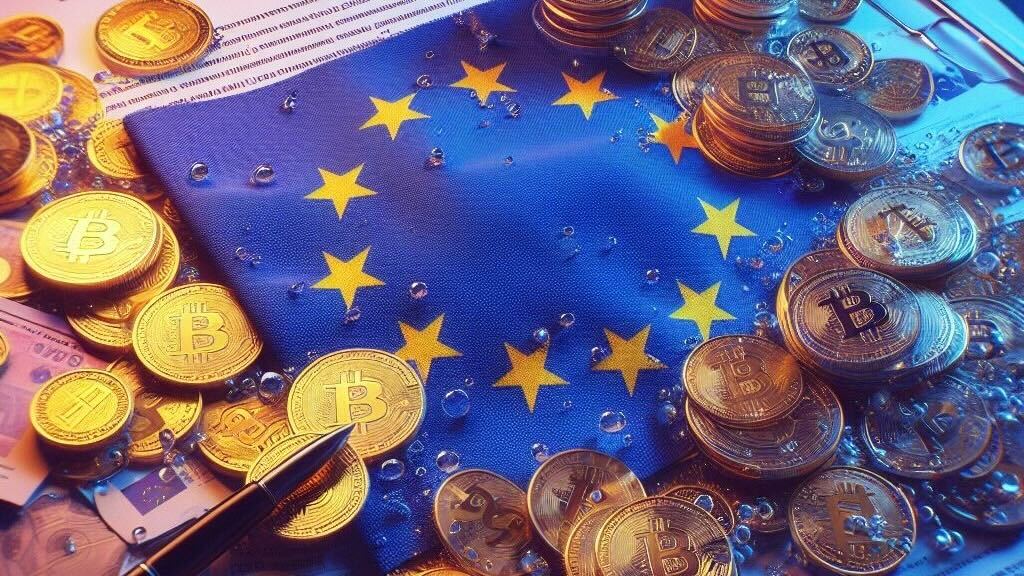
Posted: January 18, 2024 7:33 AM Updated: January 18, 2024 7:34 AM

Correction and fact check date: January 18, 2024, 7:33 AM
briefly
The EU has reached an interim agreement on aspects of AMLR to combat money laundering.

The European Parliament and the Council, made up of finance ministers from 27 member states, have reached an interim agreement on aspects of the Anti-Money Laundering Regulation (AMLR), a comprehensive regulatory package designed to combat money laundering.
Among the measures approved is a requirement that cryptocurrency companies implement “customer due diligence measures” for transactions exceeding $1,090. The transaction also introduces measures to reduce the risks associated with transactions involving self-hosted wallets.
Additionally, regulators have established specific checks on cryptocurrency asset service providers when they involve transactions between various countries. This requires cryptocurrency asset service providers to closely monitor the business relationships of wealthy individuals.
The interim agreement provides additional special powers to the Financial Intelligence Unit (FIU), allowing it to quickly and efficiently obtain important financial and administrative details. This includes information related to frozen assets, cryptocurrency-related transfers, and other related taxes, funds, and financial penalties.
The new agreement focuses specifically on the European Union’s 6th Money Laundering Directive and the rule book within the AMLR framework. AMLR represents a comprehensive plan to address sanctions evasion and money laundering by incorporating the establishment of a uniform rulebook and the creation of a supervisory authority to oversee the cryptocurrency sector.
Last year, the European Union concluded to implement specific anti-money laundering (AML) checks on cryptocurrency fund transfers under the Markets in Cryptocurrency Assets (MiCA) regulation. In December, an agreement was reached between the European Parliament and the Council to establish an AML supervisory authority.
European Union strengthens anti-money laundering measures
Financial regulators in the European Union have been improving regulations to address money laundering, including measures applicable to the cryptocurrency space.
Recently, the European Banking Authority, which supervises banks in the European Union (EU), revised anti-money laundering regulations and expanded the scope of application to cryptocurrency companies. As a result, cryptocurrency companies in the European Union must now closely scrutinize their customers, products offered, delivery methods and geographic locations to assess their potential involvement in financial crime.
The latest developments in the AMLR package reflect the European Union’s intention to strengthen measures against money laundering and promote transparency in the cryptocurrency sector.
disclaimer
In accordance with the Trust Project Guidelines, the information provided on these pages is not intended and should not be construed as legal, tax, investment, financial or any other form of advice. It is important to invest only what you can afford to lose and, when in doubt, seek independent financial advice. We recommend that you refer to the Terms of Use and help and support pages provided by the publisher or advertiser for more information. Although MetaversePost is committed to accurate and unbiased reporting, market conditions may change without notice.
About the author
Alisa is a reporter for Metaverse Post. She focuses on everything related to investing, AI, metaverse, and Web3. Alisa holds a degree in Art Business and her expertise lies in the fields of art and technology. She developed a passion for journalism through her work with VCs, notable cryptocurrency projects, and science writing. You can contact us at (email protected).
more articles

alice davidson

Alisa is a reporter for Metaverse Post. She focuses on everything related to investing, AI, metaverse, and Web3. Alisa holds a degree in Art Business and her expertise lies in the fields of art and technology. She developed a passion for journalism through her work with VCs, notable cryptocurrency projects, and science writing. You can contact us at (email protected).


